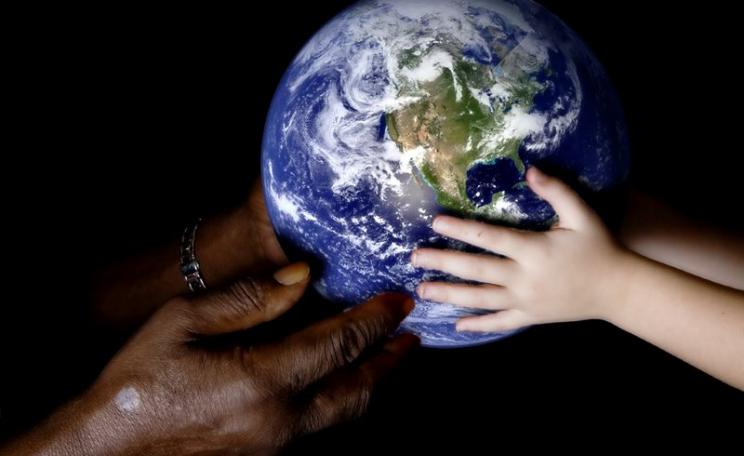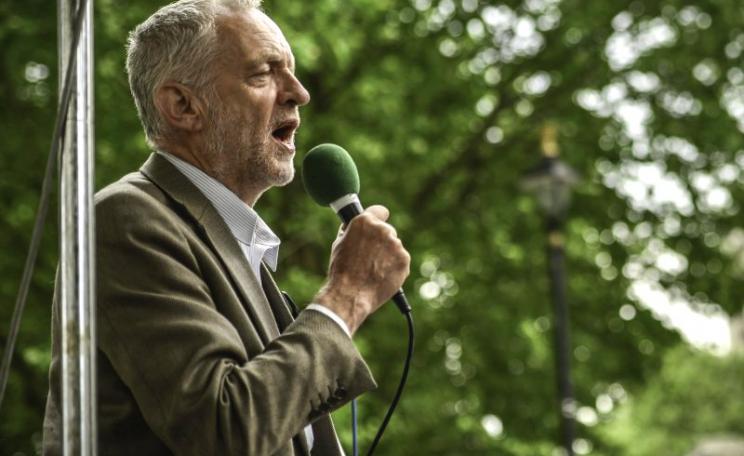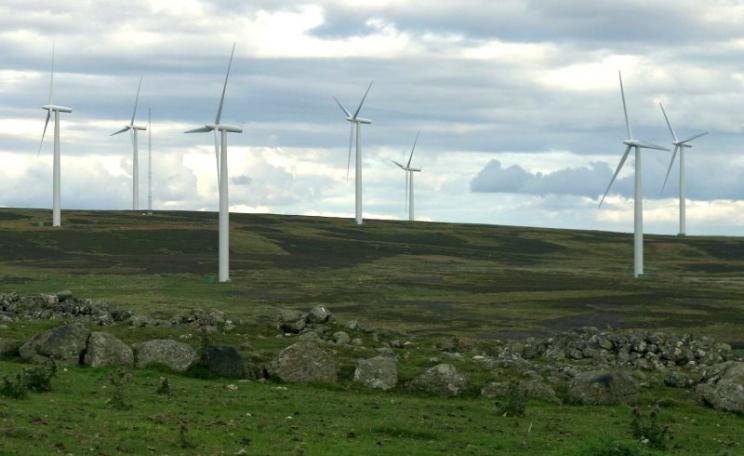Immigration is the red herring being used to beat ordinary people while the massively rich pickpocket us, doubling their wealth in five years and trashing the planet as they do so.
Rupert Read finished his piece on why he hates immigration by saying that mainstream politicians love it for the same reason that Hitler does.
Usually, comparing your opponents to Hitler immediately means that, under Godwin's Law, you've lost the argument.
But Rupert had already lost his argument long before that.
To summarise, Rupert makes a case that migration is a tool of the powerful against the powerless, and is environmentally damaging. He therefore argues that we should 'love migrants, but hate migration'.
He gives a list of reasons for why he thinks migration is a bad thing. Let me go through each of his points and explain why I disagree.
Wages of the poorest
-
"puts downward pressure on wages for the poorest - multiple studies have shown this";
It's not migrants who reduce wages, it's bosses - and the failure to sufficiently increase and properly enforce the minimum wage, and to have an active industrial policy which delivers well paid jobs in this country.
To be specific, the study Rupert links to says "each 1 percent increase in the immigrant/native working age population ratio led... to a 0.5% decrease in wages at the 1st decile".
But it's worth noting that, as MigrationObservatory put it "The available research further shows that any adverse wage effects of immigration are likely to be greatest for resident workers who are themselves migrants. This is because the skills of new migrants are likely to be closer substitutes for the skills of migrants already employed in the UK than for those of UK-born workers."
So the impact on people who've been here a long time is even less than the 0.5% would imply.
Between 2009 and 2012, the UK minimum wage fell in real terms by 5.96%. So to have the same impact as the failure to raise the minimum wage in line with inflation, if you believe the study cited, the migrant workforce ratio would have to have increased by around 12% over the same period.
In fact, the percentage of those who are foreign born nationals working in the UK increased from 8.2% to 8.3% over that period, meaning, if the study holds true, at most, migration may have accounted for a 0.05% decease in wages for the bottom decile. Compared to the impact of almost any economic policy, that's nothing.
The problem is austerity
Incomes of the poorest have fallen in recent years, but it's not because of migration. It's because of a set of neo-liberal policies - austerity, privatisation, financialisation - which have transfered wealth from the poor to the rich. Blaming migration for these problems is economic ignorance at best, and facilitating scapegoating at worst.
Immigration is the red herring being used to beat ordinary people while the massively rich pickpocket us, doubling their wealth in five years and trashing the planet as they do so.
Finally, if we care about people everywhere (and we ought to) then we must also ask about the overall impact on the wages across the world. As long as capital is mobile, the ability of workers to move to where there are better paid jobs is a key weapon in combatting the global race to the bottom.
Migration only has a marginal impact on the wages of people already here - easily counteracted with other policies - but a significant impact on the wages of poorer migrants. The idea that we ought to combat the power of the rich by limiting the freedom to move of the poor is as economically misguided as it sounds.
Wealth differentials
-
"increases wealth differentials - and inequality in a society is the worst thing for health and wellbeing, as Wilkinson and Pickett have taught us;"
Rupert doesn't provide any evidence that immigration increases inequality apart from the above idea that it marginally reduces wages for the bottom decile, which I've dealt with.
The only other reason I can think of is that allowing more impoverished people into the country means there's more of a wealth difference here, but the idea that we should combat inequality by not allowing poor people to live near us is not, I assume, what he means.
Economic Growth
-
"increases GDP / 'economic growth' - something distinctly ungreen!"
Leave aside for a moment the debate between the idea that GDP intrinsically damages the environment and the idea that it's a bad indicator of anything useful, positive or negative: environmental questions are global.
As Rupert himself says, migration doesn't necessarily mean an increase in GDP per person, just an increase in overall GDP. Without immigration, that person would still be somewhere, being economically active.
Social cohesion
-
"reduces social cohesion - bad news because to create a more progressive / redistributive economy we need a sense of that we are all citizens working together on a common project: this is 'the progressive's dilemma';"
Social cohesion breaks down because of a huge number of factors. There is vast internal migration in the UK: with most of my friends moving house every year, it's no wonder they don't know their neighbours.
Thatcher said, famously "the method is economics, but the object is to change the soul", and she used economic policy - flexible labour markets, the growth of the private rental sector, the smashing of the unions, to break down social solidarity in the UK.
Conservatives then persuaded people that the main cause of this change they had delivered was migration.
The solution to this is to build solidarity, and to reshape our economy into one which encourages us to co-operate, and to get to know our neighbours. It's not to blame the mobility of people globally.
Environmental footprint
-
"increases net environmental footprint - people migrating here whether from Estonia or East Africa suddenly jump their footprint dramatically: this is bad news of course for all things ecological / for future generations;"
Well, first, let's look at the data. Most migrants to the UK come from China. Average emissions there are 6.2 tonnes of CO2 per capita. Average emissions in the UK are 7.9 tonnes per capita. However, this masks huge inequalities in both countries.
Given that most Chinese migrants to Britain are wealthier than the average Chinese person, we can assume that their emissions are higher than the 6.2 tonnes. On the other hand, a reasonably wealthy Chinese person is about the same as an averagely wealthy UK citizen, so their emissions aren't likely to change significantly.
On the other hand, Americans, Australians, Canadians and people from many EU countries, such as Germany, come from places with higher emissions, so their emissions are likely to reduce when they move here.
It's true that those from the world's poorest countries will, if they manage to escape poverty when they arrive in the UK (of which there is no guarantee) may well see their emissions rise a little, but unless we want to argue that our solution to climate change is that the poorest people on the planet ought to be trapped in poverty, this is a no-go.
Pressure on services
-
"puts pressure on public services, housing, schools, infrastructure, food supplies - and this country is far (and getting further) from being able to feed itself;"
Quite the reverse. Migrants contribute more to public coffers than they take back. What's putting pressure on public services is austerity, and allowing the government and UKIP to get away with blaming migrants for their destructive policies is terrible politics.
The brightest and best
-
"strips the countries that migrants are coming from of their brightest and best - which is why many African countries desperately want us to reduce our imports of medical staff, etc."
I would agree that we ought not to advertise for jobs in our public services in other countries, but the the solution to this problem lies in our exploitative economic policies, not in stopping people from escaping the poverty we have forced on them.
Immigration is the red herring being used to beat ordinary people while the massively rich pickpocket us, doubling their wealth in five years and trashing the planet as they do so.
Let's not buy into that propaganda.
Adam Ramsay is co-editor of OurKingdom, the UK section of openDemocracy.net and is a member of the Green Party.







